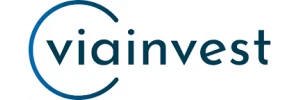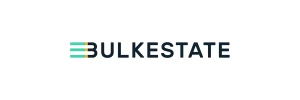Company Overview and Evolution in the United States
LendingClub Corporation, headquartered in San Francisco, California, has become a significant entity in the United States' financial technology sector. Established in 2006 by Renaud Laplanche, Soulaiman Htite, and John Mack, it pioneered the concept of marketplace lending, connecting borrowers with investors seeking to fund personal loans. This model allowed individuals to bypass traditional banks, often accessing more competitive rates or more flexible terms. The company went public on the New York Stock Exchange (NYSE: LC) in December 2014, marking a major milestone in its growth trajectory.
A pivotal moment in LendingClub's history occurred in February 2021 when it acquired Radius Bancorp. This acquisition transformed LendingClub into a digital marketplace bank, allowing it to operate under a national bank charter. This strategic move enabled LendingClub to both originate loans directly and offer deposit products, providing a more comprehensive financial ecosystem. The dual business model, combining marketplace lending with direct banking, differentiates LendingClub from many competitors, offering enhanced liquidity and control over its lending operations.
LendingClub's primary target market includes consumers across the United States with credit scores typically above 600, small business owners looking for capital, and investors seeking diversified fixed-income assets. The company's leadership, including Chief Executive Officer Scott Sanborn, emphasizes innovation and regulatory compliance. LendingClub Corporation is incorporated in the State of Delaware, reflecting its national scope and adherence to robust governance standards for a publicly traded entity in the United States.
Comprehensive Loan Products, Rates, and Fees
LendingClub Corporation offers a diversified portfolio of loan products designed to meet various financial needs for individuals and small businesses throughout the United States. Understanding the specifics of each offering, including interest rates, fees, and terms, is crucial for potential borrowers.
Personal Loans
LendingClub's personal loans are a cornerstone of its offerings, typically used for debt consolidation, home improvements, or unexpected expenses. Borrowers can apply for amounts ranging from $1,000 to $40,000 directly through its website, with LendingClub Bank offering up to $60,000 in certain cases. The Annual Percentage Rate (APR) for these loans spans from 7.04% to 35.99%, depending on the borrower's creditworthiness and other factors. Loan terms are flexible, generally ranging from 24 to 84 months, with 36 to 60 months being the most common. A key aspect to note is the origination fee, which can be anywhere from 0% to 8% of the loan amount, deducted from the disbursed funds. LendingClub does not charge prepayment penalties, allowing borrowers to save on interest by paying off their loan early.
Auto Refinance Loans
For vehicle owners looking to reduce their monthly payments or interest rates, LendingClub provides auto refinance loans. These loans are underwritten and funded directly by LendingClub Bank, N.A. Borrowers can refinance amounts up to $100,000, with terms also ranging from 24 to 84 months. The APR for auto refinance loans typically falls between 4.50% and 13.99%, making them a competitive option for eligible applicants. Unlike unsecured personal loans, auto refinance loans are secured by the vehicle's title. Secured loans, including auto refinance, may carry an origination fee between 1.85% and 9.99%, though specific details should always be confirmed during the application process.
Small Business Loans
LendingClub Bank also extends its services to small business owners, offering various financing solutions. These include Small Business Administration (SBA) 7(a) loans, commercial lines of credit, and equipment financing. Loan amounts for small businesses range from $5,000 to $500,000. The APR for these business loans typically spans from 6.00% to 29.99%, with terms generally set between one and five years. These products aim to provide capital for business growth, inventory, or operational needs.
Other Fees and Collateral
Beyond origination fees, LendingClub may charge a late payment fee if a borrower misses a scheduled payment. This fee can be up to 5% of the missed payment amount or $15, whichever is greater. Most personal loans offered by LendingClub are unsecured, meaning they do not require collateral. However, auto refinance loans are secured by the vehicle title, which means the vehicle can be repossessed if loan terms are not met. It is always wise for applicants to review all fee disclosures carefully before committing to a loan agreement.
Application Process, Technology, and Regulatory Compliance
Navigating the digital lending landscape with LendingClub involves a streamlined application process, supported by robust technology and operating under strict regulatory oversight within the United States.
Applying for a Loan
Potential borrowers can initiate the loan application process conveniently through LendingClub's user-friendly website or its dedicated mobile application. The company also partners with third-party platforms like Experian and Credit Karma, allowing users to pre-qualify for loans, which typically involves a soft credit inquiry that does not impact their credit score. During the onboarding process, LendingClub adheres to the stringent requirements of the U.S. Bank Secrecy Act, performing identity verification, conducting credit bureau checks, and requiring income documentation to ensure compliance and responsible lending. The company’s proprietary underwriting algorithm, honed since 2007 with over 150 billion data cells, evaluates applicants based on factors such as FICO score (minimum 600), debt-to-income ratio, employment history, and the stated purpose of the loan. Once approved, funds are typically disbursed via Automated Clearing House (ACH) bank transfer within one to four business days. For debt consolidation loans, LendingClub can directly pay creditors, simplifying the process for borrowers. In cases of delinquency, LendingClub employs automated reminders and an internal collections team, escalating to third-party agencies if accounts remain delinquent for over 120 days.
Mobile App Experience and Digital Reach
LendingClub places a strong emphasis on its digital experience. The LendingClub mobile app is highly rated, boasting 4.8 out of 5 stars on iOS and 4.6 out of 5 stars on Android. The app provides a range of features designed for user convenience, including loan calculators, seamless payment management, credit score monitoring tools, and direct messaging capabilities for customer support. The company’s website and digital infrastructure are built on high-availability cloud technology, ensuring reliable access and secure, SSL-encrypted connections. LendingClub serves a broad customer base, having facilitated over $90 billion in loans for more than 4.7 million borrowers since its inception, predominantly targeting urban and suburban consumers aged 25-55 within the middle-income bracket.
Regulatory Framework and Consumer Protection
Operating as a national bank through LendingClub Bank, N.A., LendingClub is subject to rigorous oversight by federal regulators including the Federal Deposit Insurance Corporation (FDIC) and the Office of the Comptroller of the Currency (OCC). Furthermore, it holds state-level lending and servicing licenses in 49 states across the United States, excluding North Dakota. The company maintains a strong commitment to consumer protection, complying with key regulations such as the Truth in Lending Act (TILA), the Equal Credit Opportunity Act (ECOA), and rules against Unfair, Deceptive, or Abusive Acts or Practices (UDAAP). These regulatory measures ensure transparent disclosures, offer a right of rescission, and provide hardship options for borrowers facing financial difficulties. While LendingClub faced a governance scandal in 2016 which led to a CEO transition, it has since maintained a clean record without major outstanding fines and undergoes regular examinations by its federal supervisors.
Market Position, Customer Feedback, and Practical Advice
LendingClub's standing in the competitive U.S. digital lending market is significant, bolstered by its unique operating model and customer-centric approach. Understanding its market position, customer feedback, and practical advice can help potential borrowers make informed decisions.
Competitive Landscape and Market Share
LendingClub holds a leading position as an online personal lender in the United States, commanding approximately 15% of the unsecured consumer installment loan market. Its primary competitors include other prominent fintech lenders such as SoFi, Upgrade, and Prosper, as well as traditional banks. LendingClub differentiates itself through its national bank charter, which provides stability and direct access to funding, its marketplace liquidity that allows for diverse funding sources, and its sophisticated proprietary data analytics developed over more than a decade. The company is actively pursuing growth and expansion, particularly in small business lending and deposit products, and exploring strategic partnerships with fintech applications and auto original equipment manufacturers for point-of-sale financing solutions.
Customer Experience and Reviews
Customer reviews for LendingClub generally highlight positive experiences, particularly concerning transparent fees and the intuitive digital user experience. On Trustpilot, LendingClub maintains an average rating of 4.5 out of 5 stars. Borrowers often praise the straightforward application process and the convenience of managing their loans through the mobile app. However, common complaints include higher interest rates for individuals with lower credit profiles and occasional funding delays during periods of high application volumes. LendingClub strives to provide quality service through 24/7 chat support, dedicated borrower advocates, and access to financial health resources, aiming to address customer concerns and improve overall satisfaction.
Practical Advice for Potential Borrowers
For individuals in the United States considering a loan from LendingClub, several pieces of practical advice can aid in making an informed decision. First, it is crucial to check your credit score, as LendingClub generally requires a minimum FICO score of 600 for personal loans. Understanding the full scope of the Annual Percentage Rate (APR) and origination fees is paramount, as these significantly impact the total cost of the loan. Utilize LendingClub's pre-qualification tools to explore potential rates without affecting your credit score with a hard inquiry. Compare LendingClub’s offerings, including terms and fees, with those of other lenders to ensure you secure the most favorable terms for your financial situation. Leverage the highly-rated mobile app for efficient loan management and payment tracking. Finally, be aware of the late payment fee structure and ensure you can meet the repayment schedule to avoid additional costs. By carefully evaluating these factors, borrowers can make an educated choice when considering LendingClub for their financial needs.








